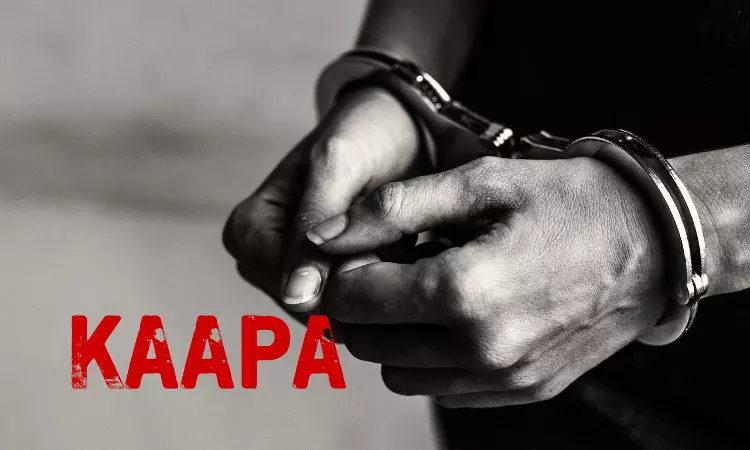- Home
- /
- High Courts
- /
- Kerala High Court
- /
- KAAPA | Police Records Digitised...
KAAPA | Police Records Digitised Across State, Six Months' Delay To 'Collect Crime Records' Invalidates Externment Order: Kerala HC
K. Salma Jennath
15 July 2025 5:40 PM IST
The Kerala High Court recently held that a delay of six months in initiating proceedings under Section 15 of the Kerala Anti-Social Activities (Prevention) Act, 2007, can sever the live link between the last prejudicial activity and the date of externment when the only explanation for the delay was that time was required to collect the crime records.Division Bench of Justice Raja...
The Kerala High Court recently held that a delay of six months in initiating proceedings under Section 15 of the Kerala Anti-Social Activities (Prevention) Act, 2007, can sever the live link between the last prejudicial activity and the date of externment when the only explanation for the delay was that time was required to collect the crime records.
Division Bench of Justice Raja Vijayaraghavan V. and Justice K.V. Jayakumar observed that, “The said explanation cannot withstand scrutiny as the entire police records have been digitised in the State, and any information with regard to the pending crimes can be obtained with the click of a mouse.”
For context, Section 15 of the KAA(P) Act empowers the District Magistrate or a police officer of the rank of Deputy Inspector General or above to pass an externment order restricting a person from entering a particular area for up to one year or to order the person to report his movements within the State.
In the present case, an externment order was passed against the petitioner restricting him from entering Thrissur district for 6 months. The petitioner was classified as a 'known rowdy' for being involved in four crimes, three of which were bailable and one was back in 2019. The last crime, i.e., the last prejudicial act, was registered six months before initiation of externment proceedings.
The petitioner challenged the externment order stating that the live link between the last prejudicial act and externment order had snapped, vitiating the order. The petitioner also contended that he appeared before the court and executed a bond after the last crime, which was bailable.
The counsel for the petitioner relied on many judgments including that of the Apex Court in Rahmat Khan alias Rammu Bismillah v. Deputy Commissioner of Police to contend that the fundamental right to move freely cannot be deprived on frivolous grounds.
After hearing both sides, the Court opined that there were not sufficient reasons to pass an externment order against the petitioner. It also stated that unexplained delay between prejudicial activities and issuance of order would break the link between the two.
“The fact that the externment order was issued after a period of six months, would make it clear that if the authorities were genuinely concerned to prevent anti-social activities, prompt action would have been taken,” the Court observed.
The Court found that though there was no universal rule regarding the minimum number of days within an externment order has to be issued, it opined that unexplained delay would come under judicial scrutiny. It observed:
“However, undue or unexplained delay between the prejudicial activities and the issuance of the order requires scrutiny by the constitutional court which is entrusted with the task of conducting a judicial review of the order.”
Finding that the live link between the last prejudicial and the purposes of the externment order had snapped, the Court allowed the writ petition and quashed the order.
Case No: WP(Crl.) No. 802 of 2025
Case Title: Shanif v. State of Kerala and Ors.
Citation: 2025 LiveLaw (Ker) 422
Counsel for the petitioner: C. Dheeraj Rajan, Anand Kalyanakrishnan, Libin Varghese
Counsel for the respondents: K.A. Anas, Public Prosecutor



